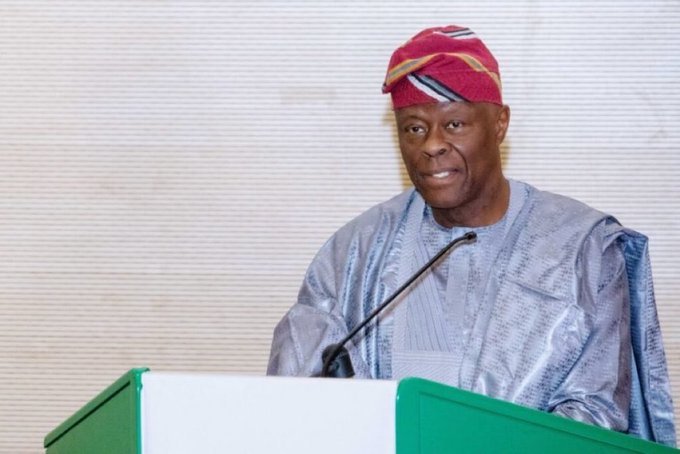The Federal Government has waded into the ongoing dispute between the Petroleum and Natural Gas Senior Staff Association of Nigeria (PENGASSAN) and the management of Dangote Refinery, summoning both parties to an emergency meeting in Abuja. The intervention comes amid growing concerns over the impact of the rift on Nigeria’s energy sector and the broader economy.
The dispute, which escalated with the shutdown of key units at the multi-billion-dollar Dangote Refinery and Fertilizer plants by PENGASSAN members, has triggered fears of fuel supply disruptions, revenue losses, and potential ripple effects on industries reliant on refined petroleum and gas products.
Government officials have appealed to PENGASSAN to suspend its strike action, warning that a prolonged shutdown could inflict significant damage on an already fragile economy struggling with inflation, foreign exchange instability, and rising energy costs.
Background to the Crisis
The crisis between PENGASSAN and Dangote Refinery did not emerge overnight. Tensions have been brewing for weeks over what union leaders describe as “unfair labour practices” and unresolved grievances affecting their members. According to sources within PENGASSAN, issues include disputes over employment terms, welfare packages, union recognition, and concerns about operational safety standards at the refinery.
On Sunday, the situation reached a critical point when PENGASSAN announced the total shutdown of the refinery’s crude distillation and diesel units, as well as the suspension of operations in one of the fertilizer plant’s two production trains. While Train One of the fertilizer unit continued to run at 60 percent capacity, Train Two was completely shut down.
Union leaders insisted the move was necessary to force management to address their demands, while the Dangote Group described the action as “disruptive and premature,” warning that it could undermine Nigeria’s hopes of achieving self-sufficiency in refined petroleum products.
Federal Government Steps In
Sensing the potential economic fallout, the Federal Ministry of Labour and Employment quickly intervened. A top official confirmed that both PENGASSAN’s national leadership and the management of Dangote Industries Limited have been summoned to an emergency meeting this week in Abuja.
“The Federal Government is deeply concerned about this development. The refinery is a strategic national asset, and any disruption to its operations has implications not only for the company but for Nigeria’s energy security and economy as a whole,” the official said.
The government’s appeal to PENGASSAN members to reconsider their nationwide strike threat underscores the urgency of the situation. If the strike were to be enforced across Nigeria’s oil and gas industry, experts warn it could paralyze fuel supply, disrupt power generation, and reduce crude oil exports at a time when the country is seeking to boost revenue.
Economic Implications
The Dangote Refinery, with a reported refining capacity of 650,000 barrels per day, is seen as a game-changer for Nigeria’s downstream petroleum sector. Since commencing phased operations, it has already begun supplying diesel, aviation fuel, and other products to the domestic market. A full shutdown threatens to derail those gains, pushing the country back into heavy reliance on imports.
For the Federal Government, the refinery is also critical to stabilizing the naira by reducing the demand for foreign exchange used in fuel imports. Any disruption in its output risks intensifying currency volatility, worsening inflation, and deepening economic hardship for Nigerians.
Oil and gas analysts further warn that halting operations at the fertilizer plant could have knock-on effects on the agricultural sector. Nigeria has invested heavily in boosting local fertilizer production to improve food security. With food inflation already at record highs, reduced fertilizer supply could worsen the situation.
Stakeholders’ Reactions
The development has sparked reactions across Nigeria’s political and economic landscape. Lawmakers in the House of Representatives had earlier criticised PENGASSAN’s actions, urging dialogue instead of confrontation. The House Committee on Downstream Petroleum Resources warned that halting gas and crude oil supply to the refinery could undermine national interests.
Civil society organisations and business groups have also appealed for restraint, noting that the dispute comes at a time when Nigeria is grappling with multiple challenges, including rising unemployment, insecurity, and high cost of living.
“Shutting down the refinery sends the wrong signal to investors. Nigeria cannot afford to jeopardize one of its most significant industrial projects due to labour-management disputes. Both sides should resolve their differences amicably,” said a Lagos-based economist.
PENGASSAN’s Position
Despite the government’s plea, PENGASSAN has maintained that its decision to withdraw services was not taken lightly. The union insists that the welfare of its members and the integrity of workplace practices must be protected.
“Our members are the backbone of the oil and gas industry. If they are being treated unfairly, it is our duty to act. We are open to dialogue, but management must demonstrate sincerity in addressing our demands,” a senior PENGASSAN official told reporters.
The union has not ruled out extending its action nationwide if its concerns remain unresolved, a scenario that would escalate the crisis significantly.
Dangote Refinery’s Response
In response, the management of Dangote Refinery has expressed disappointment at PENGASSAN’s actions. Company officials argue that the dispute could have been resolved without resorting to plant shutdowns, which they describe as “harmful to the nation’s economic stability.”
While reiterating their commitment to dialogue, management has also hinted at seeking legal redress if the industrial action continues. “We have made significant investments in this project to ensure Nigeria’s energy independence. We urge all stakeholders to consider the national interest above all,” a company spokesperson stated.
What Happens Next?
All eyes are now on the scheduled emergency meeting in Abuja. Analysts expect the Federal Government to play the role of mediator, balancing the demands of labour unions with the operational realities of a private-sector investor whose project carries national strategic importance.
The government faces the challenge of de-escalating tensions without alienating either side. For PENGASSAN, the issue is about dignity, fairness, and adherence to labour standards. For Dangote Refinery, it is about protecting a massive investment and ensuring uninterrupted operations. For the government, it is about preventing a national energy crisis that could cripple an already struggling economy.
Broader Implications for Labour Relations
The standoff also raises broader questions about labour relations in Nigeria’s private sector. The Dangote Refinery, as the largest single-train refinery in the world, employs thousands of workers, many of whom are unionised. How this dispute is resolved could set a precedent for future engagements between unions and large-scale industrial employers.
Labour experts argue that the situation highlights the need for clearer frameworks on union recognition, collective bargaining, and dispute resolution in Nigeria’s private-sector workplaces.
Conclusion
The Federal Government’s intervention in the PENGASSAN–Dangote Refinery dispute underscores the high stakes involved. A resolution will require compromise, trust-building, and recognition of the broader economic and social consequences at play.
For millions of Nigerians already facing tough economic realities, the hope is that dialogue prevails over confrontation, ensuring that the refinery continues to play its vital role in powering Africa’s largest economy.
Until then, uncertainty hangs over the fate of the refinery’s operations and Nigeria’s fragile energy sector, with the outcome of the Abuja meeting likely to shape the country’s economic trajectory in the coming months.














